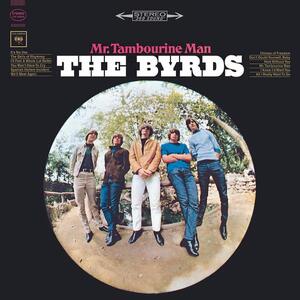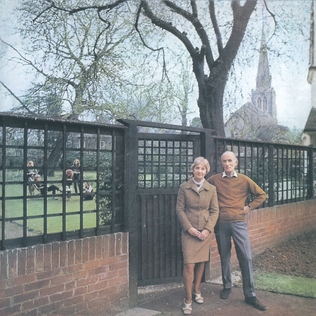Related Research Articles

Forever Changes is the third studio album by the American rock band Love, released by Elektra Records in November 1967. It was the final album recorded by the original band lineup; after its completion, Bryan Maclean left the group acrimoniously and the other members were dismissed by leader Arthur Lee. The album saw the group embrace a subtler folk-oriented sound and orchestration, while primary songwriter Lee explored darker themes alluding to mortality and his creeping disillusionment with the 1960s counterculture.
Garage rock is a raw and energetic style of rock and roll that flourished in the mid-1960s, most notably in the United States and Canada, and has experienced a series of subsequent revivals. The style is characterized by basic chord structures played on electric guitars and other instruments, sometimes distorted through a fuzzbox, as well as often unsophisticated and occasionally aggressive lyrics and delivery. Its name derives from the perception that groups were often made up of young amateurs who rehearsed in the family garage, although many were professional.
Folk rock is a hybrid music genre combining elements of folk music and rock music, which arose in the United States, Canada, and the United Kingdom in the mid-1960s. In the U.S., folk rock emerged from the folk music revival and the influence that the Beatles and other British Invasion bands had on members of that movement. Performers such as Bob Dylan and the Byrds—several of whose members had earlier played in folk ensembles—attempted to blend the sounds of rock with their pre-existing folk repertoire, adopting the use of electric instrumentation and drums in a way previously discouraged in the U.S. folk community. The term "folk rock" was initially used in the U.S. music press in June 1965 to describe the Byrds' music.

Pentangle are a British folk-jazz band with an eclectic mix of folk, jazz, blues and folk rock influences. The original band was active in the late 1960s and early 1970s, and a later version has been active since the early 1980s. The original line-up, which was unchanged throughout the band's first incarnation (1967–1973), was Jacqui McShee (vocals); John Renbourn ; Bert Jansch ; Danny Thompson ; and Terry Cox (drums).

The Incredible String Band were a British psychedelic folk band formed by Clive Palmer, Robin Williamson and Mike Heron in Edinburgh in 1966. The band built a considerable following, especially in the British counterculture, notably with their albums The 5000 Spirits or the Layers of the Onion, The Hangman's Beautiful Daughter, and Wee Tam and the Big Huge. They became pioneers in psychedelic folk and, through integrating a wide variety of traditional music forms and instruments, in the development of world music.
"Mr. Tambourine Man" is a song written by Bob Dylan, released as the first track of the acoustic side of his March 1965 album Bringing It All Back Home. The song's popularity led to Dylan recording it live many times, and it has been included in multiple compilation albums. It has been translated into other languages, and has been used or referenced in television shows, films, and books.

The Music Machine was an American rock band formed in Los Angeles, California in 1966. Fronted by chief songwriter and lead vocalist Sean Bonniwell, the band cultivated a characteristically dark and rebellious image reflected in an untamed musical approach. Sometimes it made use of distorted guitar lines and hallucinogenic organ parts, punctuated by Bonniwell's distinctively throaty vocals. Although they managed to attain national chart success only briefly with two singles, the Music Machine is today considered by many critics to be one of the groundbreaking acts of the 1960s. Their style is now recognized as a pioneering force in proto-punk; yet within a relatively short period of time, they began to employ more complex lyrical and instrumental arrangements that went beyond the typical garage band format.
British folk rock is a form of folk rock which developed in the United Kingdom from the mid 1960s, and was at its most significant in the 1970s. Though the merging of folk and rock music came from several sources, it is widely regarded that the success of "The House of the Rising Sun" by British band the Animals in 1964 was a catalyst, prompting Bob Dylan to "go electric", in which, like the Animals, he brought folk and rock music together, from which other musicians followed. In the same year, the Beatles began incorporating overt folk influences into their music, most noticeably on their Beatles for Sale album. The Beatles and other British Invasion bands, in turn, influenced the American band the Byrds, who released their recording of Dylan's "Mr. Tambourine Man" in April 1965, setting off the mid-1960s American folk rock movement. A number of British groups, usually those associated with the British folk revival, moved into folk rock in the mid-1960s, including the Strawbs, Pentangle, and Fairport Convention.
Psychedelic folk is a loosely defined form of psychedelia that originated in the 1960s. It retains the largely acoustic instrumentation of folk, but adds musical elements common to psychedelic music.

Mr. Tambourine Man is the debut studio album by the American rock band the Byrds and was released on June 21, 1965 by Columbia Records. The album, which is characterized by the Byrds' signature sound of Jim McGuinn's 12-string Rickenbacker guitar and their complex harmony singing, consists mostly of covers of folk songs, mainly composed by Bob Dylan, and originals written or co-written by singer Gene Clark. Along with the Dylan-penned single of the same name, Mr. Tambourine Man established the band as an internationally successful act and is widely regarded by critics as representing the first effective American challenge to the chart dominance of the Beatles and other British Invasion bands during the mid-1960s.
The Humblebums were a Scottish folk rock band, based in Glasgow. Its members included Billy Connolly, who later became a renowned stand-up comedian and actor; guitarist Tam Harvey; and singer-songwriter Gerry Rafferty. The band was active from 1965 to 1971.

Unhalfbricking is the third album by the British folk rock band Fairport Convention and their second album released in 1969. It is seen as a transitional album in their history and marked a further musical move away from American influences towards more traditional English folk songs that had begun on their previous album, What We Did on Our Holidays and reached its peak on the follow-up, Liege & Lief, released later the same year.
Bonnie Dobson is a Canadian folk music songwriter, singer, and guitarist, most known in the 1960s for composing the songs "I'm Your Woman" and "Morning Dew". The latter, augmented by Tim Rose, became a melancholy folk rock standard, covered by Fred Neil, Ralph McTell, Lulu, Nazareth, the Grateful Dead, the Jeff Beck Group, Robert Plant, the Pozo Seco Singers, The 31st of February, Long John Baldry, DEVO and Einstürzende Neubauten, among many others.
"Morning Dew", also known as "(Walk Me Out in the) Morning Dew", is a contemporary folk song by Canadian singer-songwriter Bonnie Dobson. The lyrics relate a fictional conversation in a post-nuclear holocaust world. Originally recorded live as a solo performance, Dobson's vocal is accompanied by her finger-picked acoustic guitar playing.
Charles Ethan Kenning is an American singer, songwriter and musician who performed as George Edwards when he led 1960s acid rock band, H. P. Lovecraft. He was adopted as a child and brought up under the name George Edwards. He reverted to his birth name of Ethan Kenning in his mid-30s.

The Pentangle was the 1968 debut album of the band Pentangle: Terry Cox, Bert Jansch, Jacqui McShee, John Renbourn and Danny Thompson. It brought together their separate influences of folk, jazz, blues, early music and contemporary songwriting. One of the band's most commercially successful albums, it reached number 21 in the British charts.
Progressive folk was originally a type of American folk music that pursued a progressive political agenda. More recently, the term has also been applied to a style of contemporary folk that draws from post-Bob Dylan folk music and adds new layers of musical and lyrical complexity, often incorporating various ethnic influences.

Forest were an English psychedelic-folk / acid-folk trio who formed in Grimsby, Lincolnshire, in 1966. Made up of brothers Martin Welham, Adrian Welham and school friend Dez Allenby, they started out performing unaccompanied traditional folk music in a similar vein to contemporaries The Watersons and The Young Tradition. The band were pioneers of the nascent 1960s underground acoustic-psychedelic/acid-folk scene writing unconventionally crafted songs evoking Britain's ancient groves using a variety of acoustic instruments.
Dando Shaft is the name of a short-lived psychedelic/progressive folk and folk jazz band that was primarily active in the early 1970s. The band has attracted a measure of attention from recent compilation releases and Dando Shaft is today known primarily as one of the major influences on the progressive stream of the 1960s folk revival.

Close is a solo album by American rock musician Sean Bonniwell, credited under the moniker T. S. Bonniwell, who had been the creative force behind the innovative garage rock band The Music Machine. The album was released on August 4, 1969, by Capitol Records. It marked a total departure from Bonniwell's rebellious protopunk period with The Music Machine, to a soft rock crooning style. In addition, the album blended folk rock and orchestrated influences, and was inspired by Bonniwell's stints in the pre-Music Machine groups, the Wayfarers and the Ragamuffins, along with his desire to be more poetically inclined. The song,"Where Am I to Go", was released as a single ahead of the album, but failed to chart. Like its attendant single, Close was also somewhat commercially unsuccessful, and was the last recording by Bonniwell for the next 20 years.
References
- ↑ Horror Revival, Folk. Folk Horror Revival: Harvest Hymns. Volume I- Twisted Roots. p. 59.
- ↑ "Rock and roll years: the 1960s". The Scotsman . Edinburgh. 16 October 2003.
- 1 2 3 Colin Larkin, ed. (1997). The Virgin Encyclopedia of Sixties Music (First ed.). Virgin Books. pp. 8/9. ISBN 0-7535-0149-X.
- 1 2 Unterberger, Richie. "Writing on the Wall Biography". AllMusic . Retrieved 28 December 2009.
- ↑ Richie Unterberger. "The Power of the Picts - Writing on the Wall". AllMusic . Retrieved 9 June 2020.